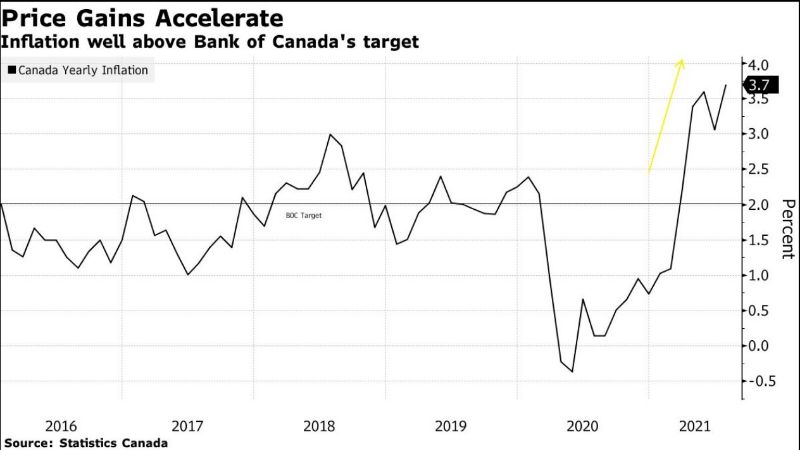There are nine million millennials in Canada, representing more than 25% of the population. Born between 1980 and 1999, the eldest are in the early stages of their careers. Millennials are optimistic about the prospect of owning their first home within the next five years.
For millennials, the Fear of Missing Out – dubbed “FOMO” – epidemic is influencing their buying purchasing decision. It is human nature to search for inclusion, to mimic the perceived greatness of those around us. And it seems that this is also the case in the current Vancouver real estate market. With low mortgage rates, increased employment, and property prices only going one way, many would-be home buyers, especially those previously sitting on the fence, are jumping feet-first into the market. They’re thinking, “Everyone else is doing it, and if I don’t do it now, I might be left behind forever.” And who knows? They may be right.
1. Don’t Rush into the Market
Lifelong savings is a crucial ingredient to financial prosperity. You must spend less than you earn, ideally saving at least 10% of your gross income. Put your savings on automatic pilot, having at least 10% of every paycheque automatically deducted. The money you don’t see you won’t spend.
Contributing to a Registered Retirement Savings Plan (RRSP), at least enough to gain any matching funds your employer will provide, is essential. First-time home buyers are able to withdraw up to $25,000 of their RRSP through the Home Buyer Plan to be used towards the purchase of their first home. This amount will have to be repaid in 15 annual installments after a 1-year grace period from the date of purchase or withdrawal.
You also need to establish a good credit record. Your credit score plays a major role in determining how much a lender will allow you to borrow, the interest rate that you’ll be able to get on your mortgage or decide whether you’ll be approved for a mortgage at all. To learn how to improve your credit score, read our blog entitled “4 Ways To Improve Your Credit Score To Get The Best Mortgage Rate.”
2. Set a Realistic Budget
Millennials are often criticized for their spending habits. They spend more money eating out, travelling, and on coffees than their parents and grandparents. They are likely relatively new to the working world. Lenders want to see stability in employment and you generally need to show at least two years of steady income before you can be considered for a mortgage. This also applies if you have been working for a few years in one career and then decide to change careers to something completely different. Millennials will not follow in the footsteps of their parents, working for one employer for forty years. They will continue to job-hop until they find a job that blends their career with their passion.
Financial planning is key and it is dependent on your goals and expectations. Determine how much home you can afford by comparing your income with your current or planned expenses and debt payments and see what you can afford as a monthly mortgage payment.
3. Get Experience on Your Side
This is not a Do-It-Yourself job. You need expert advice. A seasoned Mortgage Broker will ask you about your down payment, income, credit, and type of property you are hoping to buy. Once the discussion is complete, you will have a good idea of what kind of mortgage you can comfortably fit into your budget. There are more than 200 mortgage lenders in Canada and they will compete for your business. It is a very good idea to get a pre-approved mortgage amount before you start shopping.
A pre-approval will help you determine the maximum amount of money that you can borrow for your home plus a guaranteed interest rate. Our pre-approvals are guaranteed for up to 120 days. Getting pre-approved for a mortgage will give you peace of mind knowing what home you can afford and puts you in a good position to make an offer when your dream home comes onto the market.
Once you have been pre-approved, you will need a realtor who specializes in the neighborhood where you are looking to purchase that dream home. A specialist in the area will be able to tell you about the location, the average price per square foot, and know the community inside and out.
4. Down Payments and Closing Costs
If you are planning to buy your first home in Vancouver, you will need a couple of things to get qualified. One of the most important things would be your down payment and closing costs. As Mortgage Insurers stopped providing insurance for Zero Down Mortgages post-recession, the minimum down payment that is required in today’s market is still only 5%, subject to change. Here are some of our creative ways to come up with the 5% down payment you need. Keep in mind that if you are putting less than 20% as a down payment, you will also need to provide confirmation that you will have funds available to cover closing costs. The lender will request a bank statement or proof that you have at least 1.5% of the purchase price set aside towards closing costs.
5. Test Drive Your Monthly Housing Payments
Affordability is not about how much credit you can qualify for, but how much you can reasonably tolerate given your current and future income, stability, lifestyle, and budget. Most millennials underestimate what it costs to run a home, be it a condo, townhouse, or single-family residence.
The best way to know what you can afford is to try it out. Say, for example, you qualify for a mortgage payment of $1,400 a month and adding property taxes and condo fees might take your monthly housing expense to $1,650. A far cry from the $500 you pay now to split a place with 3 roommates. Start making the full payment before you buy to your savings account and see how it feels. Do you have enough money left over to maintain a tolerable lifestyle without going further into debt?
Keep in mind that this is not a normal interest rate environment. Don’t over-extend because there is a good chance interest rates will be higher when your term is up. Do the math (or better yet have your broker do it for you) on what a doubling of interest rates five years from now would do to your monthly payment. A doubling of rates may be unlikely, but it makes sense to know the implication.

